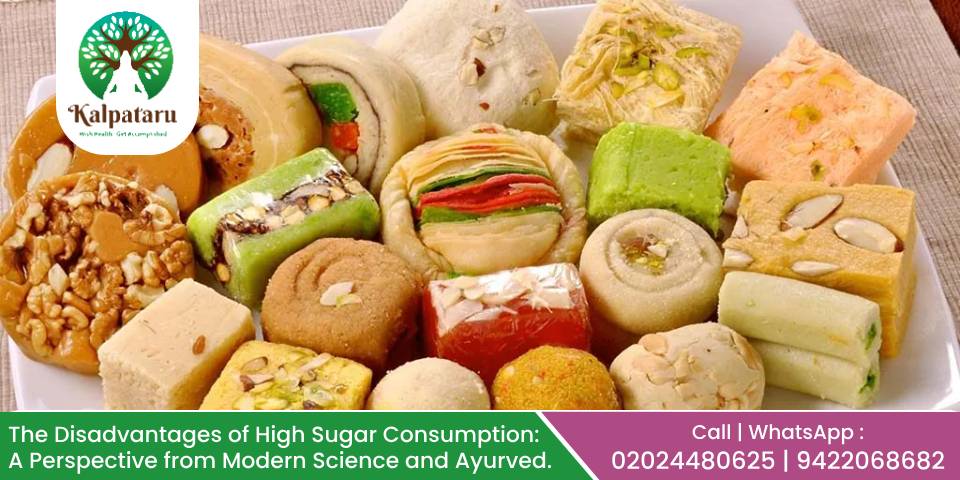Understanding the Role of the Sweet Taste:
In the ancient tradition of Ayurveda, the taste is not merely a sensory experience but a fundamental aspect of health and well-being. Among the six recognized tastes, the sweet taste stands out for its nourishing qualities, attributed to a harmonious blend of the earth and water elements. From infancy to old age, the sweet taste plays a crucial role in promoting growth and sustaining bodily functions.
The Importance of Moderation:
While the sweet taste is essential for overall health, Ayurveda emphasizes the importance of moderation. Excessive consumption of sweet-tasting foods and substances can disrupt the delicate balance of energies within the body, leading to a range of health issues. It’s crucial to appreciate the therapeutic properties of sweetness while being mindful of its potential drawbacks.
Balancing Act: Sweetness and Health
Ayurvedic texts acknowledge the therapeutic benefits of certain sweet-tasting medications, particularly in healing fractured bones and restoring equilibrium to the body’s energies. Sweet taste brings satisfaction to both body and mind. However, when consumed in excess, sweetness can contribute to conditions such as obesity, diabetes, throat disorders, and even the formation of tumors. An imbalance in the Kapha dosha, associated with the elements of water and earth, can further compound health issues.
The Need for Mindful Consumption:
Despite the risks associated with excessive sweetness, it remains an integral part of a balanced diet. Children, the elderly, and pregnant women, in particular, require adequate levels of sweetness for optimal health. However, mindful consumption is key, ensuring that sweetness enhances rather than detracts from overall well-being.
Striking a Balance:
In Ayurveda, as in life, balance is paramount. By embracing the principles of moderation and mindfulness, individuals can harness the nourishing qualities of sweetness while mitigating its potential drawbacks. Through a holistic approach to diet and lifestyle, guided by the wisdom of Ayurveda, one can cultivate lasting health and well-being.
Understanding the Harmful Effects of Sugar:
- Weight Gain: Excessive sugar consumption leads to obesity, a major risk factor for heart disease.
- Depression: Sugar can contribute to depression by affecting dopamine levels in the brain.
- Heart Disease: High sugar intake can lead to inflammation, elevated triglycerides, and increased blood pressure, all contributing to heart disease.
- Skin Issues: Sugar can worsen acne and accelerate skin aging due to increased oil production and collagen damage.
- Diabetes Risk: Sugar contributes to insulin resistance and obesity, increasing the risk of diabetes.
- Cancer: Sugar consumption may promote cell multiplication and inflammation, potentially raising cancer risk.
- Skin Aging: Sugar damages collagen and elastin, leading to wrinkles and sagging skin.
- Dental Cavities: Sugar is a primary cause of tooth decay and cavities.
- Joint Pain: Reduced sugar intake can alleviate joint pain, and excessive sugar is linked to an increased risk of arthritis.
- Fatty Liver: High sugar intake can contribute to fatty liver disease.
Tips to Reduce Sugar Intake:
- Choose water, unsweetened beverages, or natural seltzer over sugary drinks.
- Foods with fresh fruits instead of added sugars.
- Opt for low-sugar cereals and snacks.
- Use natural nut butter instead of sweet spreads.
- Avoid sweetened alcoholic beverages.
- Focus on whole, fresh foods over processed options.
Summary:
In Ayurveda, the sweet taste, derived from a blend of earth and water elements, plays a vital role in nourishing the body and fostering growth. However, while sweetness is essential for overall health, excessive consumption can disrupt the body’s balance, leading to various health issues. Ayurvedic texts acknowledge the therapeutic benefits of sweetness, but caution against overindulgence, which can contribute to obesity, diabetes, throat disorders, and imbalances in bodily energies. Despite these risks, sweetness remains integral to a balanced diet, particularly for children, the elderly, and pregnant women. By embracing moderation and mindfulness in consumption, individuals can harness the benefits of sweetness while safeguarding their health and well-being according to the principles of Ayurveda.
Dr. Manoj Deshpande and Dr. Aparna Deshpande at Kalpataru Ayurvediya Chikitsalaya™ Clinic provide the best Ayurvedic Treatment for Psoriasis & various diseases in Pune, Maharashtra. For more information about our comprehensive treatment options, or to request an appointment with the best Ayurvedic Doctor in Pune, call +919422068682 / +919764837167 / 020-24480625 or Click on Book an Appointment.

